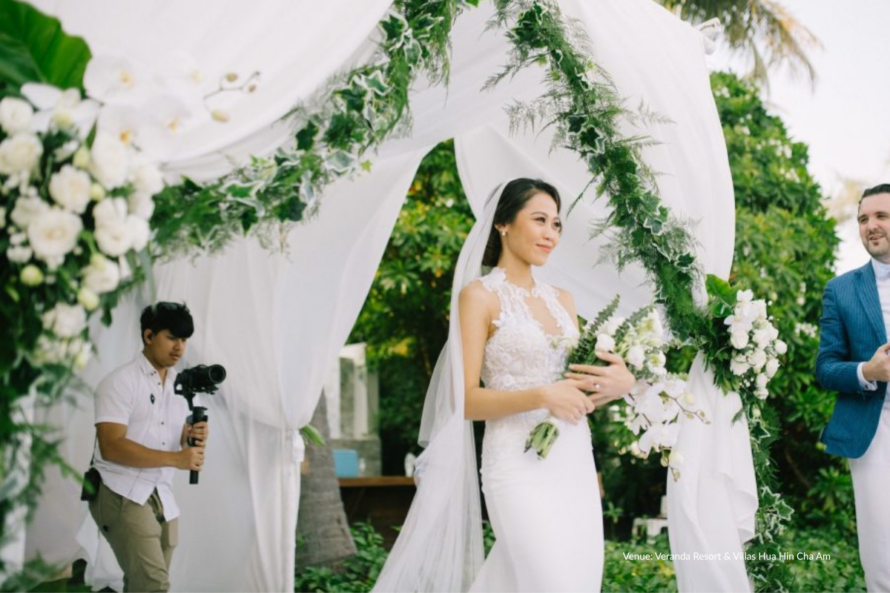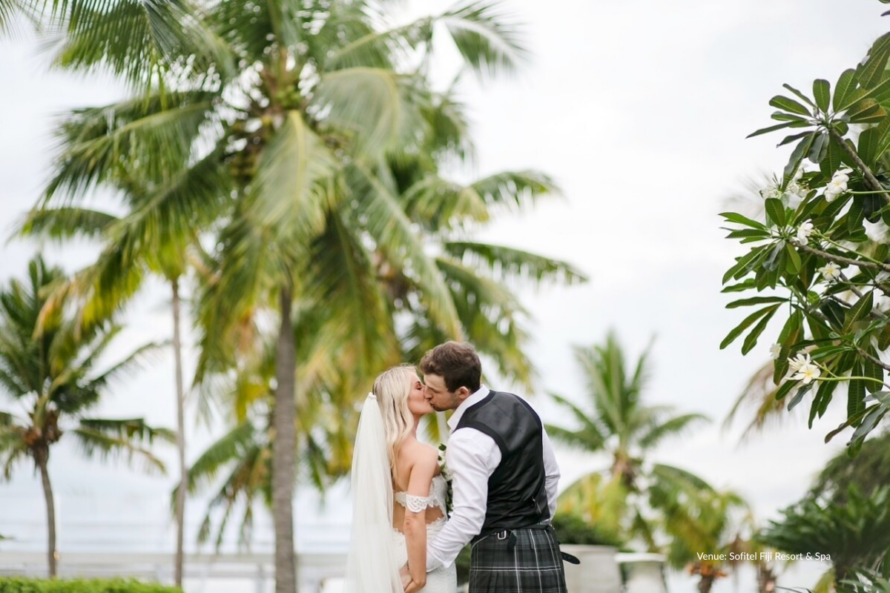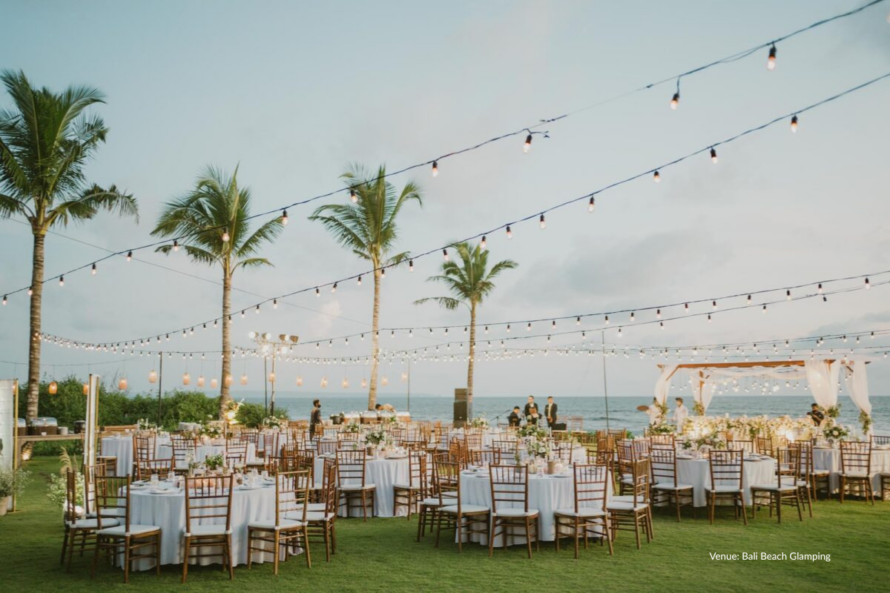A Fiji wedding: When’s the best season to host yours?

Postcard-perfect beaches. Crystal lagoons in shades you didn’t think existed. Palm trees swaying like they’re dancing to your playlist. If there’s a place built for weddings, it’s Fiji.
But while the backdrop won’t disappoint, the timing of your wedding can shape everything: from the weather to your guest list’s comfort to how long your makeup lasts before the humidity shows up. So, when is the best time to host a Fiji wedding?
In a place where the word paradise barely does it justice, understanding the rhythm of the seasons can help you choose the right window for your celebration. Below, we explore the best times of year for weddings in Fiji, the hidden upsides of off-peak months, and a few helpful truths you won’t find in the travel brochures.

Venue: Crowne Plaza Fiji Nadi Bay
Understanding Fiji’s climate
Fiji is blessed with warm, tropical weather year-round, but that doesn’t mean all months feel the same. The climate here follows a familiar rhythm: two main seasons, each bringing its own character, charm, and considerations for your wedding plans.
- Dry season (May to October)
- Wet season (November to April)
Temperatures remain fairly consistent throughout the year (typically 26–31°C), but rainfall and humidity levels shift significantly between the two seasons.
Even during the wet season, you’ll often get several days of beautiful weather. But if you’re planning an outdoor ceremony, want to avoid any last-minute wet weather Plan Bs, and prefer cooler evenings, the dry season is generally your best bet.
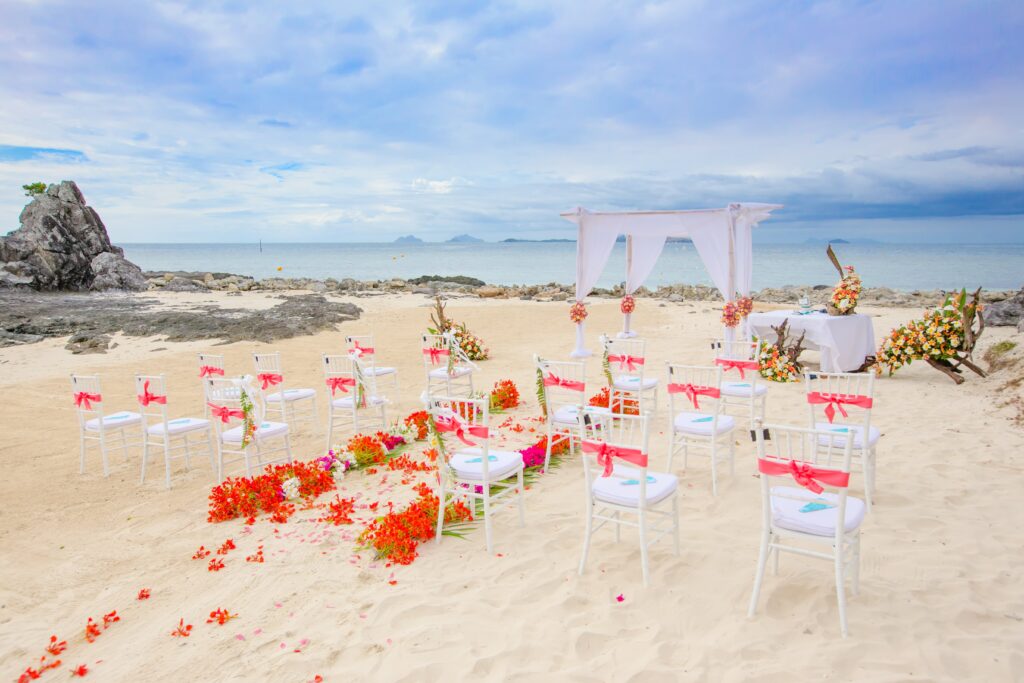
Venue: Castaway Island Fiji
Dry season (May to October): The classic choice
Best for: Outdoor ceremonies, barefoot receptions, cooler evenings, beach weddings, peace of mind
May to October is Fiji’s dry season and the most popular time of year for weddings. Days are sunny, evenings are breezy, and humidity is relatively low. The skies tend to stay clear, the seas are calm, and there’s a relaxed rhythm to island life that feels made for celebration.
Temperatures hover between 26–29°C, and the lower humidity makes a noticeable difference—not just in guest comfort, but in how well everyone’s hair holds up.
Why couples love a Fiji wedding in dry season:
- Consistently great weather
- Better conditions for photography and drone footage
- Perfect for pre-wedding activities like island hopping, snorkelling, or welcome dinners under the stars
- Less risk of tropical storms
Things to consider:
- Peak wedding season = higher demand
- Accommodation and vendor prices can spike in school holidays (June–July in Australia and NZ)
You’ll need to book venues and suppliers well in advance
Insider tip: September is often a sweet spot—it’s dry, warm, and just before school holidays kick in. If you’re after postcard weather without peak crowds, this is your month.
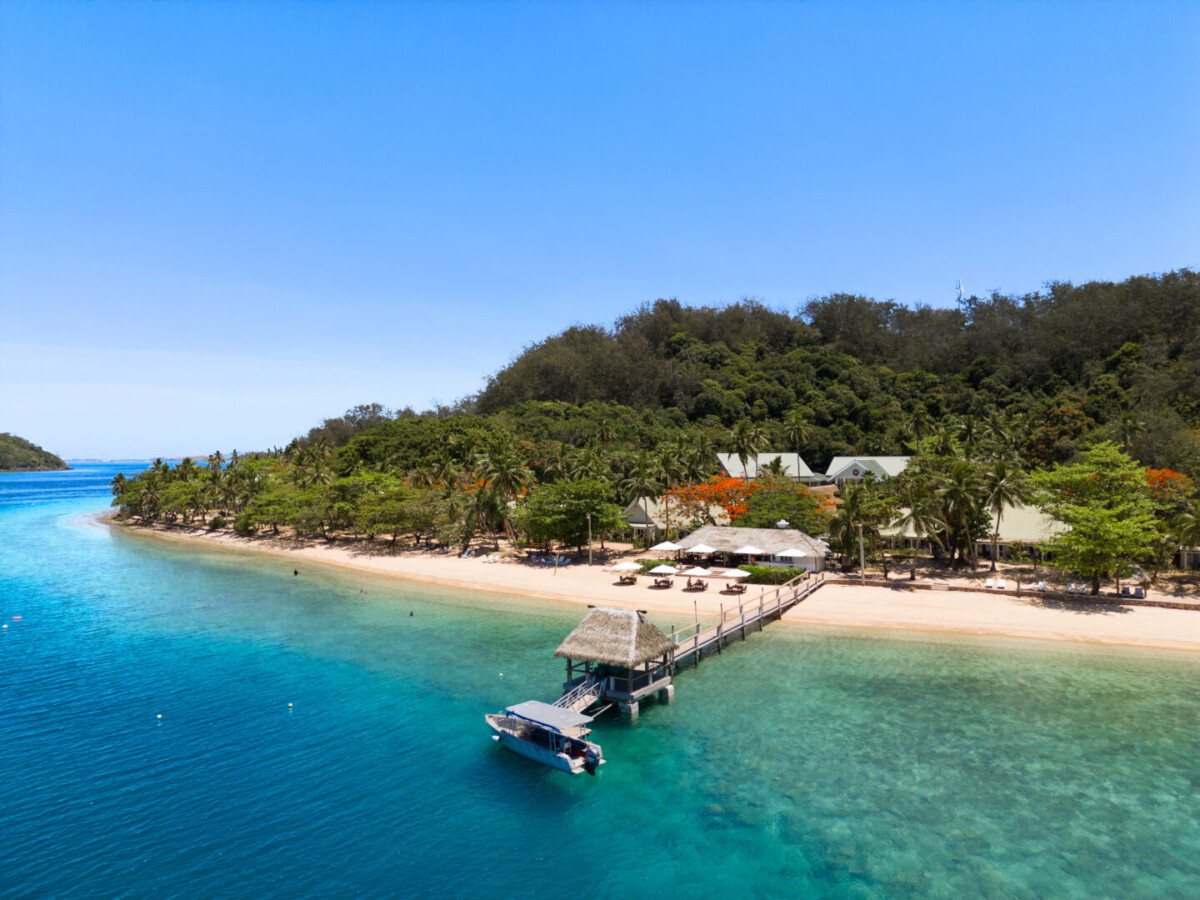
Venue: Malolo Island Resort
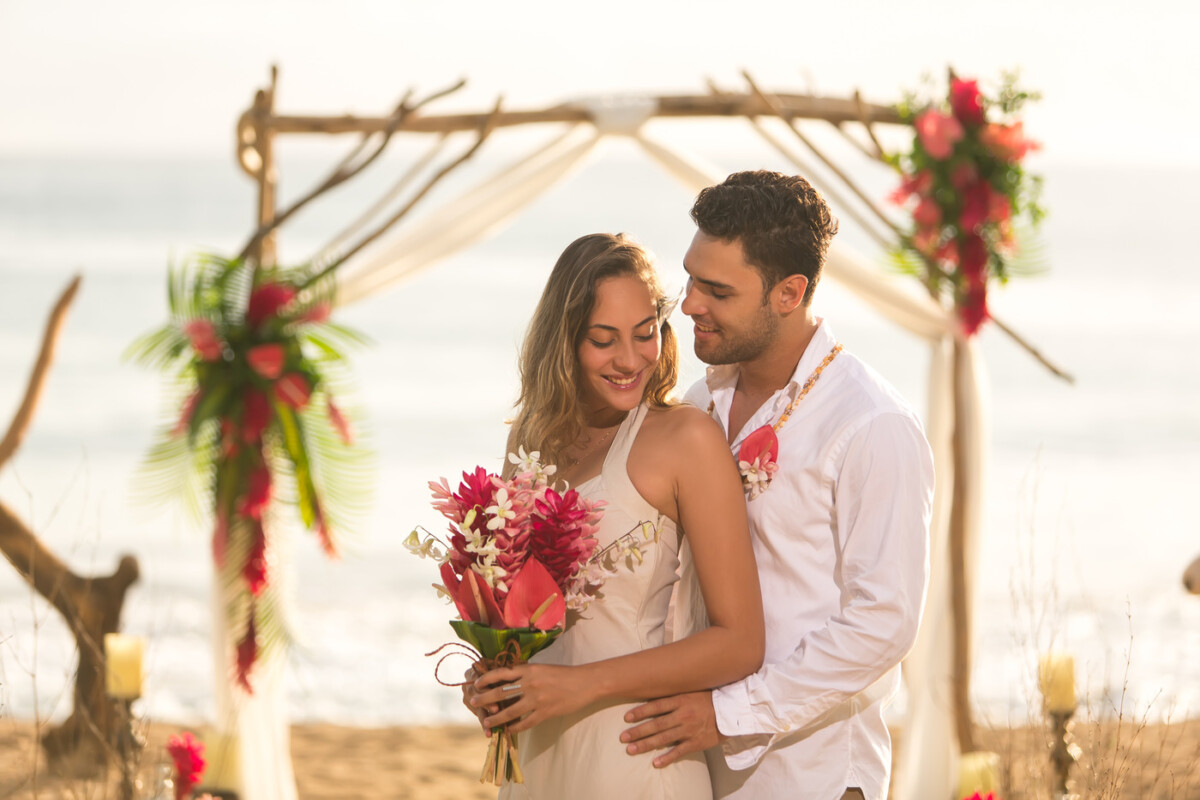
Venue: Yatule Resort Spa
Wet season (November to April): Unexpectedly lush
Best for: Bold couples, budget-friendly weddings, moody skies, tropical romance
Don’t let the term wet season scare you off: it’s not monsoons and madness. Fiji’s rainy season brings short, intense bursts of rain (often at night), followed by sunshine and clear skies. Everything is greener, fuller, and more vibrant during this time, which makes for stunning wedding photos, especially if you love a bit of drama in your lighting.
You’ll also find better availability, more competitive pricing from venues, and an overall slower pace that can feel intimate and unhurried.
Why some couples choose a Fiji wedding in wet season:
- Lower accommodation and vendor costs
- More venue options and flexibility on dates
- Dramatic skies and lush scenery
- A more relaxed, local vibe
But be ready for:
- Higher humidity (bring the blotting paper)
- The chance of afternoon rain or storms (hello, backup plan)
- Cyclone season, which runs from November to April (rare, but worth factoring in)
Worth noting: December to February are the wettest months and carry the highest risk for tropical storms. That said, many weddings go ahead with little interruption—it’s just about building flexibility into your plans.
A quick word on shoulder seasons for a Fiji wedding
Some of the best weddings in Fiji happen during the in-between months—April and October—when the weather is starting to shift but still holds many of the benefits of the dry season. These months often deliver beautiful days, warm evenings, and a little more breathing room when it comes to bookings and budgets.
If you’re after that perfect balance—less rain, more flexibility, and slightly quieter beaches—these transitional months might just be your best-kept secret.
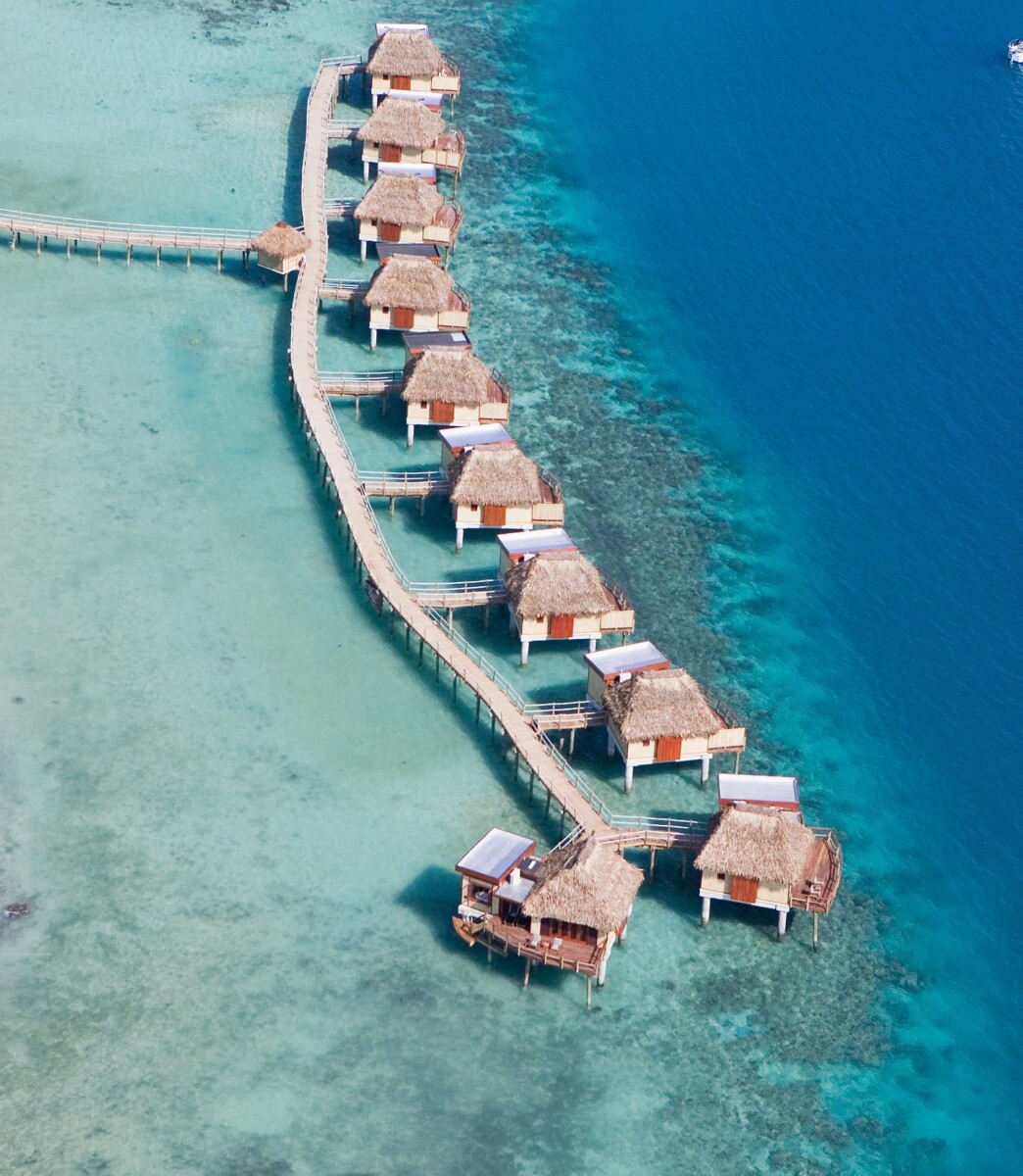
Venue: Likuliku Lagoon Resort
A few local truths worth knowing about a Fiji wedding
1. Fiji time is real (and it’s lovely)
Fiji runs on island time. Things move slower, conversations stretch longer, and nobody is in a rush—least of all your vendors. That’s not to say your wedding won’t run smoothly. It absolutely will. But expect a more relaxed, flexible pace. If you let go of rigid timelines, you’ll find a lot of joy in the slower rhythm.
2. Your backup plan isn’t a compromise
If you’re planning a wedding during the wetter months, your backup option (a covered deck, beachfront pavilion, or indoor-outdoor space) might just become the star of the show. Many of Fiji’s best venues are designed with the seasons in mind, and they’re just as magical under shelter as they are under open skies.
3. Humidity is part of the package
Especially from November to April. Embrace it. Wear lighter fabrics, give your guests welcome packs with mini fans and chilled water, and let your hair stylist know what they’re working with. The result? Effortless island beauty that feels right at home.
4. Legal vs symbolic Fiji weddings
Legal weddings in Fiji are possible (and relatively straightforward), but they do require some prep. You’ll need to be in the country at least three days before the ceremony and submit required documents to the Births, Deaths & Marriages Registry. Most resorts can help with this, but processing times and holidays (especially around Christmas and Easter) can affect the schedule.
That’s why many couples opt for a legal ceremony back home and a symbolic one in Fiji. It offers more flexibility on timing—and the ceremony itself feels no less meaningful.
5. Best times for guests (because they matter, too)
Remember that your wedding date isn’t just about your calendar—it’s about your guests’, too. If you’re inviting loved ones to travel from Australia or New Zealand, consider long weekends, school holidays, or shoulder seasons with cheaper flights. June to August is peak travel time, but May and September often strike the best balance of cost, weather, and availability.
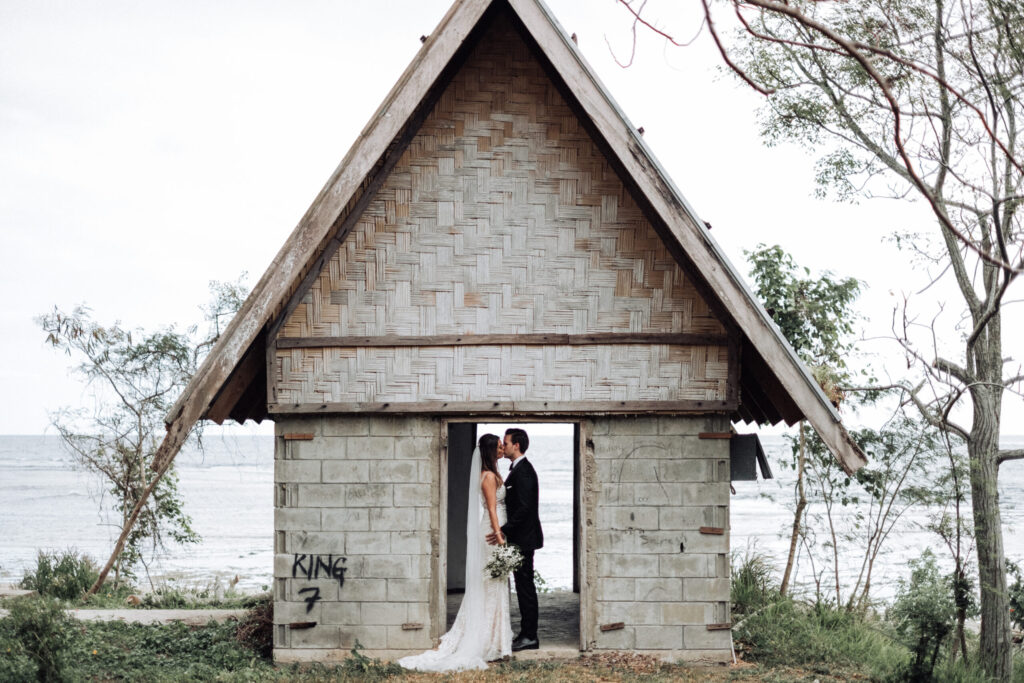
Venue: Outrigger Fiji Beach Resort // Photography by Leezett Photography
Ready to say “I do” to a Fiji wedding?
From sun-drenched vows in the dry season to dreamy elopements during the lush, quieter months, Fiji is a destination built for love. And at Destination Weddings, we’re here to help you choose the perfect time – and team – to bring it all to life.
We’ve matched hundreds of couples with their dream venues and trusted local vendors, taking care of all the details so you can focus on what really matters: making memories.
Let’s start planning your Fiji wedding today. Reach out, and let the island magic begin.
